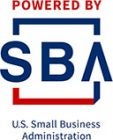Owning a small business is like sailing. Sometimes the waters are smooth, sometimes they’re rough—to say the least. The better constructed and equipped your boat is, the better you’ll weather the storms.
The recent COVID-19 crisis and wave of stay-at-home orders moved through like a hurricane that sank some businesses and threatened others—even seaworthy ones with skilled captains at the helm. As the initial storm quiets, now is the time to shore up your business to withstand a sustained downturn and prepare for a possible second wave of shutdowns.
Rhode Island Small Business Development Center business consultants Paul Harden, Josh Daly, Henry Schwarzbach, and Manuel Batlle share information from their years of experience about cultivating financial health, building a safety net, and preparing for another small business crisis.
As a small business owner, what can I do to strengthen financial health now and for the next 1–3 years?
Harden: Communicate with your lenders, landlords, suppliers, and other creditors regularly to let them know where your business stands and what your plans are. Wherever possible, build your cash reserves and take opportunities to reduce your monthly overhead. Consider refinancing long-term debt at lower rates if feasible. If you have long-term debt at a reasonable rate it may be best to leave in place (rather than paying off early) in order to build cash reserves.
Daly: Making time to get a good handle on your financials now is as important as shoring up the foundation of a house. It doesn’t have to be about hours and hours spent pouring over the minutiae of financial statements. It’s about answering important questions such as:
- How did we do this week, month, or quarter vs. the previous time period?
- Which revenue streams were up or down, and why?
- How is our timeline of getting paid (receivables) vs. paying bills (payables) helping or hurting?
- Which expenses went up or down, and why—and are there any we can reduce?
- How effective was our marketing spend?
Schwarzbach: The key to getting your financials in order is to know your numbers and what will happen, in a crisis, to your revenues, expenses, assets, liabilities and lines of credit, and cash flow.
Batlle:
- Small business owners should work on monthly cash flow for the next three years: at the end of every month, check real vs. planned income and expenditures and make necessary adjustments.
- Accounts payable should be paid the last day due, or earlier if there are any “prompt payment” discounts to take advantage of.
- For accounts receivable, be more aggressive with collections.
- Keep inventory at minimum levels, or if possible use a just-in-time inventory
- Utilize zero-based budgeting.
How can my business build a cash reserve now?
Daly: You can’t build a nest egg without net income. When you have better control of your financials, you can make decisions on what to double down on, what to tweak, and what to stop doing. Set weekly, monthly, and quarterly targets for important financial metrics (revenue, units sold, profit margin, accounts receivable/accounts payable days, etc.) and check against them regularly.
Batlle: Scrutinize expenses and try to find less expensive items or ways to do things. Payroll is usually one of the largest expenses. Write down a job description for each of your current employees and try to consolidate jobs to reduce headcount.
Harden:
- If possible, reduce the payout to owners.
- Look to see if your employee wages are competitive, and if they are higher than the industry average consider a pay freeze, putting the savings into a special account.
- Consider selling or renting unused assets to generate cash.
- Work with vendors to reduce monthly expenses and fees.
Schwarzbach: A business is an extension of its owners. While it may be OK without a cash reserve or nest egg for major uncertainties, it needs to have the means to keep cash positive. A business needs to focus on three things: Risk analysis, risk prevention and mitigation, and insuring itself (including sources of emergency capital through a line of credit, raising capital, selling assets, and securing insurance policies on risks that the company cannot survive).
How can my business in RI plan financially for a “second wave” of virus shutdowns?
Harden:
- Learn from the first wave. Take time to document what helped, and what didn’t work.
- Communicate with your customers that you have a plan in place to continue to serve them.
- Take the time to understand your employees’ home situations, as they may be impacted by school closings and family health issues.
- If your IT system is not already cloud-based, consider switching to a cloud-based system to more easily facilitate working remotely.
Schwarzbach: The key for all businesses is to prepare cash flow statements for multiple scenarios and find ways to make sure your cash does not go below zero. Businesses that did (relatively) well during the period of sheltering in place, such as liquor stores, take-out restaurants, and online businesses, need to make sure their supply chains will be intact and consider adding alternative suppliers. They must also now plan ways to keep their employees and customers healthy.
For businesses that were forced to close or operate at a substantially lower level:
- Increase online presence if possible
- Improve supply chain management to minimize inventory
- Reduce fixed costs
- Make agreements with landlords, lenders, and employees that facilitate flexibility when required
Daly: Many business owners have been forced to think creatively to respond to this crisis. Business model tweaks such as adding delivery and curbside pickup, or shifting to e-commerce, will serve them well in another wave of the crisis and also make them more resilient to natural market shifts. Building your rainy day fund with cash to cover 3–6 months of expenses, prior to putting savings into other financial vehicles, is also an important way to plan for a second wave.
For small business support, check out our schedule of training and workshops offered throughout RI.




